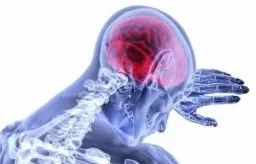Could an Experimental Drug Revolutionize Treatment for Young Patients with Rare ALS?

Synopsis
Key Takeaways
- Ulefnersen shows potential to reverse functional losses in young ALS patients.
- Study participants experienced up to an 83% decrease in a nerve damage biomarker.
- The drug has demonstrated a good safety profile.
- Two patients exhibited remarkable recovery, regaining lost abilities.
- A global clinical trial is underway to further evaluate ulefnersen.
New Delhi, May 23 (NationPress) A breakthrough treatment utilizing an experimental drug has demonstrated promising advancements for young individuals suffering from a rare variant of Amyotrophic Lateral Sclerosis (ALS), a progressive neurodegenerative condition, according to a recent report by a team of researchers in the United States.
ALS, often referred to as Lou Gehrig's disease, is an uncommon disorder that targets nerve cells in both the brain and spinal cord, resulting in the deterioration of motor neurons. This leads to challenges with movement, balance, coordination, and potentially impacts breathing.
While previous experimental treatments have managed to slow or halt the disease's progression, the novel approach using ulefnersen (formerly known as jacifusen) has shown the potential to reverse functional losses in young patients.
According to Neil Shneider, a neurologist and scientist at Columbia University, "In our assessments of new ALS medications, we typically do not anticipate seeing clinical improvements." However, he noted, "The unprecedented functional recovery observed in one patient is both surprising and profoundly inspiring for the ALS research community and the wider ALS patient community."
Data involving 12 patients, all treated with this innovative therapy targeting a rare type of ALS linked to a genetic mutation in the FUS gene, were discussed in a case series published by Shneider in The Lancet.
Though mutations in this gene account for only 1-2% of ALS cases, they lead to some of the most severe forms of the disease, often manifesting in teenagers and young adults.
In individuals with these mutations, toxic FUS proteins amass in motor neurons that control muscle functions, ultimately leading to neuronal death.
Two patients reported in the case series exhibited remarkable improvements following treatment with ulefnersen, developed by Shneider in partnership with Ionis Pharmaceuticals in California.
One young woman, who began receiving injections of this therapy in late 2020, regained her ability to walk unaided and breathe without a ventilator, both of which had been compromised by ALS. She has outlived any known patient with this juvenile-onset form of FUS ALS.
The other patient, a man in his mid-30s, started treatment while asymptomatic, but tests indicated that symptoms were imminent. After three years of ongoing treatment with the experimental drug, he has yet to show any signs of FUS-ALS, and the abnormal electrical activity in his muscles has improved.
On average, after six months of treatment, patients in the study experienced up to an 83% reduction in the neurofilament light protein, a key biomarker for nerve damage.
Shneider stated, "These outcomes suggest that if we act swiftly and target the right areas at the appropriate stage of the disease, we can not only slow its progression but also reverse some functional impairments."
While many other symptomatic patients did not survive their aggressive form of the disease, Shneider mentioned, "Several seemed to benefit from the treatment, experiencing slower disease progression and extended lifespans as a result."
The case series also confirmed that the drug is safe and well-tolerated, with no significant adverse events reported.
Following the positive results from the initial patients, a global clinical trial for this drug is currently underway.
Shneider concluded, "We are now eagerly awaiting the trial results, which we hope will facilitate the approval of ulefnersen."








